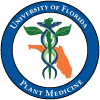Dr. John Erickson

Featured in: DPM Newsletter Spring 2015
Dr. John Erickson is an Associate Professor and Environmental Agronomist at the University of Florida. He joined the Gator Nation faculty in the summer of 2007 after completing his post doctoral research at the Smithsonian Environmental Research Center, Edgewater, MD. That same year Dr. Erickson became an Affiliate for the UF School of Natural Resources and Environment (SNRE). His post-doctoral research focused on wetland responses to elevated CO2 levels resulting from global climate change. Prior to working at the Smithsonian, Dr. Erickson completed his Bachelor’s and Ph.D. in Physiology within the Forestry Department at the University of Wisconsin.
Between his undergraduate and doctoral degrees, Dr. Erickson traveled to Florida Atlantic University for his Master’s degree. While in South Florida, he worked at the UF Fort Lauderdale Research and Education Center (FLREC) on minimizing the environmental impacts of urban landscapes.
Many of the projects currently underway in Dr. Erickson’s lab involve reducing the environmental impacts of agriculture through the use of best management practices and crop phenotypes that increase fertilizer and water use efficiency. Specific crops of interest include sorghum, wheat, corn, peanuts, and turf.
Additionally, Dr. Erickson is an instructor for both Crop Ecology and Environmental Crop Nutrition. These courses are offered during Fall semesters and may be taken on campus or distance-based online.
Aside from his role as an instructor and his passion for scientific discovery through research, Dr. Erickson serves as the Supervisory Committee Chairperson for DPM students Kayla Thomason and Christopher Kerr. He is also a Committee Member for DPM Student Christopher Ferguson. When asked for his opinion of the effectiveness of the DPM program at training students for future careers in academia and extension, Dr. Erickson explained that he felt the program is quite interesting and managed well. He believes the program’s strength lies in its interdisciplinary approach, breadth of curricula, and intensive internship requirement. He also notes that it grants both students and faculty the ability to interact with one another in unique environments that might not exist with a more traditional degree program. This mentality echoes in Dr. Erickson’s advice to his students to get to know their professors and faculty members early in their degree program to establish a well-rounded and strong network for communication and future opportunities.
